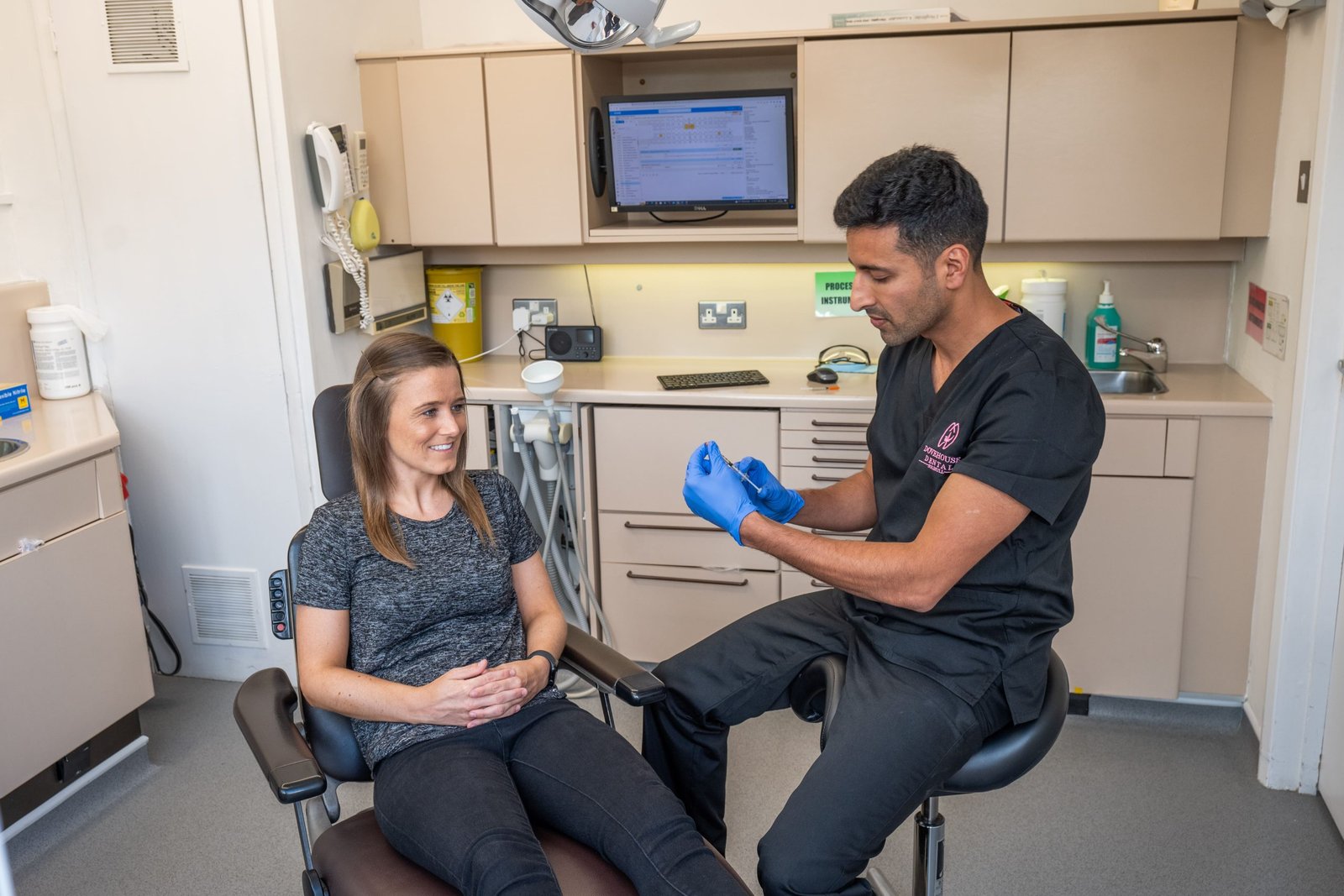Are you concerned about the health of your teeth? Do you want to avoid dental extractions and maintain strong, healthy teeth through orthodontic treatment? Don’t forget to floss regularly and use mouthwash to keep your teeth clean and free from bacteria. Additionally, using mouthwash can help replenish beneficial minerals for optimal oral health. These oral care practices help with remineralisation and promote the absorption of beneficial minerals, which can contribute to maintaining healthy teeth and gums. Prevention is key.
By following a few simple tips, you can significantly reduce the risk of needing dental extractions for kids. These tips can help preserve the minerals in their teeth and prevent the need for oil-based extractions. From practising good oral hygiene habits to being mindful of cavity-causing foods and drinks, there are steps you can take to protect your teeth, including dental extractions. This is especially important for kids and babies, as their teeth are still developing and need extra care. Additionally, maintaining a diet rich in minerals can help support healthy tooth growth. Contact us today if you have any questions.
Importance of Regular Dental Checkups
Regular dental checkups play a vital role in preventing dental fractures and maintaining strong teeth. Additionally, these checkups also help in identifying the need for extractions, ensuring overall oral health. These routine visits to the dentist not only help detect and address existing dental issues, including extractions but also contribute to the prevention of future problems. Let’s explore why regular dental checkups, including extractions, are crucial for maintaining optimal oral health.
During these dental extraction appointments, dentists have the expertise to identify potential fractures that may go unnoticed otherwise. They thoroughly examine your teeth, gums, and mouth for any signs of dental extractions, damage, or weakness. By detecting dental extractions early on, dentists can take necessary preventive measures to avoid further complications.
Professional cleanings performed during regular checkups are an integral part of dental care. Even with diligent at-home oral hygiene practices, plaque buildup can occur over time, leading to the need for dental extractions. Dentists use specialised tools to remove this stubborn plaque that cannot be eliminated through regular brushing and flossing alone. By keeping your teeth free from plaque, you significantly reduce the risk of developing fractures.
In addition to addressing immediate concerns and cleaning your teeth, regular dental visits provide an opportunity for comprehensive oral health evaluation. Dentists assess the overall condition of your mouth, including checking for signs of gum disease or other underlying issues that could impact tooth strength. By identifying these problems early on, appropriate treatment plans can be implemented promptly.
Preventing dental fractures goes beyond just focusing on individual teeth; it involves considering the entire oral environment. Regular checkups allow dentists to evaluate how well your bite aligns and whether any abnormalities in jaw movement or tooth positioning could lead to fractures in the future. Addressing these structural concerns helps maintain overall oral health and reduces the risk of tooth damage.
Moreover, dentists provide valuable guidance during these visits regarding proper oral care techniques specific to your needs. They educate patients about effective brushing habits, suitable toothpaste choices, and optimal flossing techniques tailored to their unique circumstances. This personalised advice ensures that you are taking the necessary steps to maintain strong teeth and prevent fractures.
15 Natural Ways to Strengthen Teeth
Taking care of our teeth is essential for maintaining good oral health. While regular brushing and flossing are important, there are also natural ways to strengthen teeth. By incorporating certain foods and habits into your daily routine, you can promote stronger teeth and prevent dental fractures. Here are 15 tips to help you maintain strong and healthy teeth.
- Consuming calcium-rich foods: Calcium is crucial for strong teeth as it helps build and maintain tooth enamel. Include dairy products like milk, cheese, and yoghurt in your diet, or opt for non-dairy alternatives such as almonds, leafy greens, and tofu.
- Getting enough Vitamin D: Vitamin D plays a vital role in tooth strength by aiding the absorption of calcium. Spend some time outdoors to soak up the sun’s rays or consider taking a Vitamin D supplement if necessary.
- Including phosphorus-rich foods: Phosphorus works alongside calcium to strengthen tooth enamel. Incorporate foods like fish, lean meats, eggs, nuts, beans, and lentils into your meals to increase your phosphorus intake.
- Chewing on crunchy fruits and vegetables: Munching on crisp fruits and vegetables not only promotes overall health but also strengthens teeth naturally. The act of chewing stimulates saliva production which helps neutralise acids in the mouth that can weaken tooth enamel.
- Avoiding sugary snacks: Excessive sugar consumption can lead to tooth decay and weaken enamel over time. Limit your intake of sugary snacks like candies, sodas, and pastries to protect your teeth from damage.
- Drinking plenty of water: Staying hydrated is important for oral health as it helps wash away food particles and bacteria that can contribute to dental issues. Make sure to drink an adequate amount of water throughout the day.
- Using fluoride toothpaste: Fluoride is known for its ability to prevent tooth decay and strengthen enamel. Choose a toothpaste that contains fluoride and brush your teeth at least twice a day for optimal protection.
- Avoiding tobacco products: Smoking or using other tobacco products can significantly weaken teeth and contribute to gum disease. Quitting tobacco not only improves overall health but also helps maintain strong teeth.
- Limiting acidic foods and drinks: Acidic foods like citrus fruits, tomatoes, and vinegar can erode tooth enamel over time. While they are nutritious, it’s important to consume them in moderation and rinse your mouth with water afterwards.
- Using a mouthguard during physical activities: If you participate in sports or any activity that poses a risk of dental injury, wearing a mouthguard is essential. Mouthguards provide an extra layer of protection against fractures and other dental trauma.
- Avoiding excessive teeth grinding: Teeth grinding, also known as bruxism, can weaken teeth over time.
Avoiding Hard and Crunchy Foods
Hard and crunchy foods can increase the risk of dental fractures, causing pain and other problems. To maintain strong teeth and prevent such issues, it is important to be mindful of the foods we consume. Opting for softer alternatives can minimise the strain on our teeth and reduce the chances of dental fractures.
Cutting food into smaller pieces can help alleviate the pressure exerted on your teeth while chewing. By doing so, you are less likely to experience discomfort or risk damaging your teeth. Moreover, avoiding biting down directly on hard objects like ice or pens is crucial in preventing tooth fractures.
Here are some tips to help you avoid hard and crunchy foods:
- Choose Softer Alternatives: Instead of indulging in hard candies or nuts that pose a risk to your teeth, opt for softer alternatives such as yoghurt, mashed vegetables, or cooked fruits. These options are not only gentle on your teeth but also provide essential nutrients.
- Modify Your Cooking Techniques: If you enjoy crunchy foods like raw vegetables or crispy snacks, consider modifying their texture by steaming or baking them instead. This makes them easier to chew without compromising their nutritional value.
- Avoid Chewy Treats: Sticky candies and chewy treats can be particularly harmful to your teeth as they tend to stick around longer, increasing the risk of dental fractures. Opt for healthier alternatives like fresh fruit slices or sugar-free gum instead.
- Be Cautious with Popcorn: While popcorn may seem harmless at first glance, those pesky unpopped kernels can wreak havoc on your teeth if bitten unexpectedly. Be cautious when consuming popcorn by being mindful of any uncooked kernels that may be hiding within.
- Consider Alternative Snacks: Instead of reaching for hard pretzels or chips as a snack option, try healthier choices like carrot sticks, cucumber slices with hummus dip, or air-popped popcorn. These alternatives are not only tooth-friendly but also contribute to better overall health.
By following these tips, you can minimise the risk of dental fractures and maintain strong teeth. Remember, prevention is always better than cure, so it’s essential to be mindful of the foods we consume and make conscious choices to protect our oral health.
Eliminating Grains and Refined Sugar from the Diet
Reducing grain consumption and eliminating refined sugar from your diet can significantly contribute to preventing dental fractures and maintaining strong teeth. Let’s explore how these dietary changes can benefit your oral health.
- Reducing grain consumption lowers the risk of tooth decay and fractures
Grains, especially refined grains, can be harmful to our teeth. When we consume foods like bread, pasta, and cereals made from refined grains, they break down into sugars in our mouths. These sugars then fuel the growth of bacteria that produce acids, leading to tooth decay.
By reducing our intake of grains, we can minimise the amount of sugar available for bacterial growth. This helps lower the risk of tooth decay and subsequently reduces the chances of dental fractures.
- Refined sugar contributes to weakened tooth enamel, leading to higher chances of fractures
Refined sugar is a major culprit. Consuming sugary snacks and beverages regularly exposes our teeth to high levels of sugar which can weaken tooth enamel over time.
When tooth enamel weakens, our teeth become more susceptible to fractures as they lose their protective layer. By eliminating or minimising refined sugar intake, we give our teeth a better chance at maintaining their strength and resilience.
- Replacing grains with healthier options like fruits and vegetables benefits overall oral health
Instead of relying on grains as a primary source of carbohydrates in your diet, consider incorporating more fruits and vegetables into your meals. Fruits and vegetables are not only packed with essential nutrients but also contain natural sugars that are less damaging to teeth compared to refined sugars found in grains.
Fruits and vegetables require more chewing, which stimulates saliva production. Saliva plays a crucial role in neutralising acids produced by bacteria in the mouth, helping protect against tooth decay.
- A low-sugar diet helps maintain strong teeth by reducing acid production
Cutting back on sugar is not only beneficial for your overall health but also plays a vital role in maintaining strong teeth. When we consume excessive amounts of sugar, our mouths become more acidic, creating an environment that promotes the growth of harmful bacteria and weakens tooth enamel.
By following a low-sugar diet, we can reduce acid production in our mouths, helping to preserve tooth enamel and prevent dental fractures. Opting for sugar-free products and limiting sugary treats to occasional indulgences can make a significant difference in protecting our teeth.
Chewing Sugar-Free Gum for Dental Health
Chewing sugar-free gum is not only a delightful habit but also a simple and effective way to maintain oral health. Let’s explore how this seemingly innocent activity can help prevent dental fractures and keep your teeth strong.
Stimulating Saliva Production
One of the key benefits of chewing sugar-free gum is its ability to stimulate saliva production. Saliva plays a crucial role in maintaining oral health by helping to remineralize teeth. It contains essential minerals like calcium and phosphate, which strengthen tooth enamel and protect against decay. By increasing saliva flow, chewing gum assists in the natural defence mechanism of your mouth, keeping your teeth healthy and strong.
Fighting Bacteria with Xylitol
Some sugar-free gums contain xylitol, a natural sweetener that not only enhances flavour but also helps fight bacteria that cause cavities. Unlike regular sugar, xylitol cannot be metabolised by oral bacteria, preventing them from producing harmful acids that erode tooth enamel. By incorporating xylitol into your gum-chewing routine, you can actively combat the development of cavities and promote better oral health.
Removing Food Particles and Reducing Plaque Buildup
Chewing gum after meals can be an effective way to remove food particles lodged between teeth or along the gumline. As you chew, the sticky nature of the gum helps pick up these remnants, reducing the chances of bacterial growth and plaque formation. Consistent gum chewing stimulates saliva production (as mentioned earlier), which further aids in washing away food debris and reducing plaque buildup. This simple habit can contribute significantly to maintaining good oral hygiene.
Contributing to Stronger Teeth Over Time
Regularly chewing sugar-free gum can have long-term benefits for your dental health. Increased saliva production, reduced plaque buildup, and fighting cavity-causing bacteria contribute to stronger teeth over time. While it may not replace brushing and flossing, incorporating gum-chewing into your oral care routine can be an excellent supplementary measure to maintain healthy teeth and prevent dental fractures.
Incorporating sugar-free gum into your daily routine is a simple yet effective way to promote oral health. Remember these tips: choose gums with xylitol for added protection against cavities, chew gum after meals to remove food particles and reduce plaque buildup, and make it a regular habit for long-term benefits. By taking these preventive measures, you can keep your teeth strong and healthy, minimising the risk of dental fractures and other oral health issues.
So why not grab a pack of sugar-free gum today? Your mouth will thank you!
Tongue Cleaning and Saltwater Rinses
Maintaining strong teeth goes beyond just brushing and flossing. Incorporating additional practices into your daily routine can significantly contribute to preventing dental fractures. Two simple yet effective habits to consider are tongue cleaning and saltwater rinses. Let’s delve into why these practices are beneficial for oral health.
Tongue Cleaning: Eliminating Bacteria for Strong Teeth
Did you know that bacteria can accumulate on your tongue? These bacteria, if left unchecked, can lead to tooth decay and even fractures. That’s where tongue cleaning comes in handy. By gently scraping your tongue with a tongue cleaner or using the brush side of your toothbrush, you remove the bacteria that reside there.
Tongue cleaning not only aids in preventing dental issues but also helps maintain fresh breath. By removing the bacteria responsible for bad breath, you’ll feel more confident throughout the day.
Saltwater Rinses: Promoting Healing and Reducing Inflammation
Saltwater rinses have been used for centuries as a natural remedy for various oral ailments. Saltwater rinses play a vital role in reducing inflammation and promoting healing within the mouth.
The saline solution created by mixing salt with warm water acts as an antiseptic agent. It helps cleanse wounds, reduces swelling, and fights off infection-causing bacteria. Gargling with salt water after meals or before bed can provide significant benefits for oral health.
Simple Yet Effective Practices
Incorporating both tongue cleaning and saltwater rinses into your daily routine is relatively easy. These practices require minimal effort but yield remarkable results.
To make it a habit:
- Tongue Cleaning: After brushing your teeth, gently scrape your tongue from back to front using either a dedicated tongue cleaner or the brush side of your toothbrush.
- Saltwater Rinses: Dissolve half a teaspoon of salt in a glass of warm water. Gargle with the solution for 30 seconds, ensuring it reaches all areas of your mouth. Spit out the mixture and rinse with plain water.
By following these steps consistently, you’ll be actively supporting your oral health and preventing dental fractures.
How to Minimise Damage to Cracked Teeth
Cracked teeth can be a source of discomfort and potential dental problems if not properly managed. To prevent further damage and maintain strong teeth, it’s important to follow a few essential tips.
Avoid biting down on hard or sticky foods with cracked teeth
When you have a cracked tooth, it’s crucial to be mindful of the foods you consume. Hard or sticky foods can exacerbate the crack and potentially lead to more significant damage. To minimise the risk:
- Steer clear of chewing on ice, hard candies, or popcorn kernels.
- Be cautious when eating chewy candies, caramel, or taffy that could stick to your cracked tooth.
- Opt for softer alternatives like yoghurt, mashed potatoes, or cooked vegetables.
By avoiding these types of foods, you can reduce the strain on your cracked tooth and help prevent further damage.
Use a dental splint or crown to protect cracked teeth from further damage
If you have a cracked tooth, your dentist may recommend using a dental splint or crown as a protective measure. These options provide support and stability for the affected tooth while minimising the risk of additional fractures. Here are some details about each option:
- Dental splint: A dental splint is an appliance made from a thin wire that holds the cracked tooth in place by attaching it to neighbouring healthy teeth.
- Crown: A crown is a custom-made cap that covers the entire visible portion of the damaged tooth above the gum line. It provides protection and reinforcement for the weakened structure.
Consult with your dentist to determine which option is best suited for your situation.
Seek immediate dental care if you experience pain or sensitivity in a cracked tooth
Pain or sensitivity in a cracked tooth should never be ignored. It could indicate nerve involvement or an underlying infection that requires prompt attention from your dentist. If you experience any discomfort related to your cracked tooth, it’s essential to:
- Contact your dentist immediately to schedule an appointment.
- Describe your symptoms in detail, including the level of pain and sensitivity you are experiencing.
Early intervention can help prevent further damage and alleviate any discomfort associated with the cracked tooth.
Follow your dentist’s recommendations for treatment options to prevent the worsening of the fracture
When dealing with a cracked tooth, it is crucial to follow your dentist’s recommendations for treatment. Depending on the severity of the crack, possible solutions may include:
- Dental bonding: A tooth-coloured resin is applied to the cracked area and hardened using a special light, restoring both appearance and strength.
- Root canal therapy: If the crack extends into the pulp of the tooth, a root canal procedure may be necessary to remove infected or damaged tissue.
- Tooth extraction: In severe cases where preservation is not feasible, extraction might be required. Your dentist will discuss replacement options such as dental implants or bridges.
By adhering to your dentist’s advice, you can prevent further deterioration of the fracture and maintain optimal oral health.
Maintaining Strong Teeth Naturally
Congratulations on completing the sections before the conclusion! By now, you have learned valuable tips and tricks to keep your teeth strong and prevent dental fractures. Remember, prevention is key. With a few simple changes to your daily routine, you can significantly reduce the risk of tooth damage and enjoy a healthy smile for years to come.
To put these tips into action, start by scheduling regular dental checkups. Your dentist will be able to identify any potential issues early on and provide personalised advice for maintaining strong teeth. Make sure to incorporate natural ways to strengthen your teeth into your daily routine. From avoiding hard and crunchy foods to eliminating grains and refined sugar from your diet, these small adjustments can make a big difference in protecting your pearly whites.
So why wait? Take charge of your dental health today and implement these strategies into your lifestyle. Your strong teeth will thank you!
BOOK AN APPOINTMENT
FAQs
Can I still eat my favourite crunchy snacks?
Yes, you can still enjoy crunchy snacks! However, it’s important to exercise caution and choose healthier alternatives that are less likely to cause dental fractures. Opt for softer options like carrot sticks or apple slices instead of hard candies or popcorn kernels.
Is chewing sugar-free gum really beneficial for my teeth?
Absolutely! Chewing sugar-free gum stimulates saliva production, which helps neutralise acids in the mouth and wash away food particles. It’s an easy and enjoyable way to promote dental health between meals.
How often should I schedule dental checkups?
It is generally recommended to visit the dentist every six months for regular checkups and cleanings. However, depending on individual circumstances or specific oral health concerns, your dentist may recommend more frequent visits.
Are there any natural remedies for strengthening teeth?
Yes! In addition to the tips mentioned in this blog post, various natural remedies can help strengthen teeth. For example, oil pulling with coconut oil, using fluoride-free toothpaste with remineralizing properties, and consuming foods rich in calcium and vitamin D can all contribute to stronger teeth.
Can I repair cracked teeth at home?
While there are temporary measures you can take to alleviate discomfort caused by cracked teeth, it is essential to seek professional dental care for a proper diagnosis and treatment. Attempting to fix a cracked tooth at home may lead to further damage or infection. Always consult with your dentist for the best course of action.




